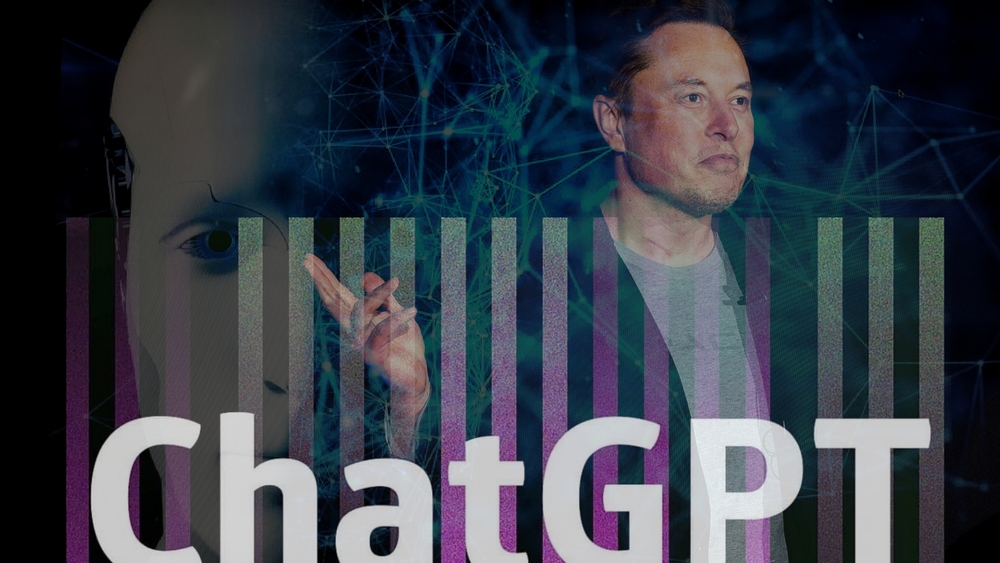Elon Musk has filed a lawsuit against OpenAI and its co-founders, Sam Altman and Greg Brockman, for allegedly breaching the agreement they signed when the three men founded OpenAI.
The lawsuit offers an interesting look at the genesis of the company that has become the leader in developing state-of-the-art AI models. It hinges on the two main aims of OpenAI that were documented in the company’s “Founding Agreement”.
The three men agreed that OpenAI “would be a nonprofit developing AGI for the benefit of humanity, not for a for-profit company seeking to maximize shareholder profits.”
They also agreed that OpenAI “would be open-source, balancing only countervailing safety considerations, and would not keep its technology closed and secret for proprietary commercial reasons.”
Musk feared and still does, that the profitable pursuit of AGI and exclusive control of the technology by companies like Google would be detrimental to human society.
The idea behind the agreement was that OpenAI would create an open and safe AGI that would be freely available to humanity, thereby removing the risk of for-profit companies using the tech to mankind’s detriment.
The breach
Today’s undisputed leading AI model is OpenAI’s GPT-4, but there’s nothing remotely open about it, despite the name of the company that developed it. Unlike with GPT-3, OpenAI hasn’t even released a technical paper detailing how GPT-4 works.
While the founding agreement said the company would pursue open-source tech, only OpenAI, and probably Microsoft, has access to GPT-4’s code, weights, and training data.
It costs money to run a company like OpenAI, so it’s no surprise that it charges users to use its products. But its exclusive licensing agreement with Microsoft means its models are now used to generate profit for Big Tech. Exactly the opposite of the founding principles Musk says they all agreed to.
The lawsuit claims that “OpenAI, Inc. has been transformed into a closed-source de facto subsidiary of the largest technology company in the world: Microsoft. Under its new board, it is not just developing but is actually refining an AGI to maximize profits for Microsoft, rather than for the benefit of humanity.”
Do we have AGI?
Microsoft’s licensing arrangement only applies to OpenAI’s pre-AGI technology. If an OpenAI model is determined to have reached the level of AGI, then the licensing agreement precludes Microsoft from getting access to it.
Musk’s lawsuit makes a bold claim by stating that “GPT-4 is an AGI algorithm” so Microsoft shouldn’t have access to it. The lawsuit asks that the court rule that this is true. I’m not sure how the judge and jury are supposed to do that in the absence of an industry-accepted definition of exactly what AGI is.
The lawsuit also confirms the rumors of what OpenAI’s engineers have been working on. The lawsuit claims that “OpenAI is currently developing a model known as Q* (Q star) that has an even stronger claim to AGI.”
Ultimately, it’s the OpenAI board that decides what qualifies as AGI under the Microsoft licensing agreement. After the Altman firing, rehiring, and board shuffle, that decision now lies with new board members who were appointed with Microsoft’s blessing.
Is this why Ilya Sutskever was removed from the board and quietly stuck in some back room? Has anyone heard from him in months? What did Ilya see?
Don’t expect the new board to be in a rush to claim that AGI has been achieved, even though that is the expressly stated aim of the company.
AI fears
One of the stated motivations behind the lawsuit is Musk’s ongoing fears over AGI falling into the wrong hands.
The lawsuit recounts how Musk met with DeepMind co-founder Demis Hassabis in 2012 to discuss these fears, some of which Hassabis shared.
It also states that “following a meeting with Mr. Hassabis and investors in DeepMind, one of the investors remarked that the best thing he could have done for the human race was shoot Mr. Hassabis then and there.”
When Musk discussed his fears with Google’s then-CEO Larry Page, Page said that superintelligent AI replacing humans would merely “be the next stage of evolution,” and claimed Musk was being a “specist” with his pro-human views.
Is Musk being overly dramatic, or should we worried?
The lawsuit is worth reading if you want a behind-the-scenes look at how a big part of the industry got where it is today. The case is not likely to be resolved any time soon though.
OpenAI may well confirm Musk’s AI fears and use that as the main reason for not releasing its models as open-source. Arguing the company’s pursuit of profit may be a tougher job for OpenAI’s already very busy legal team.





